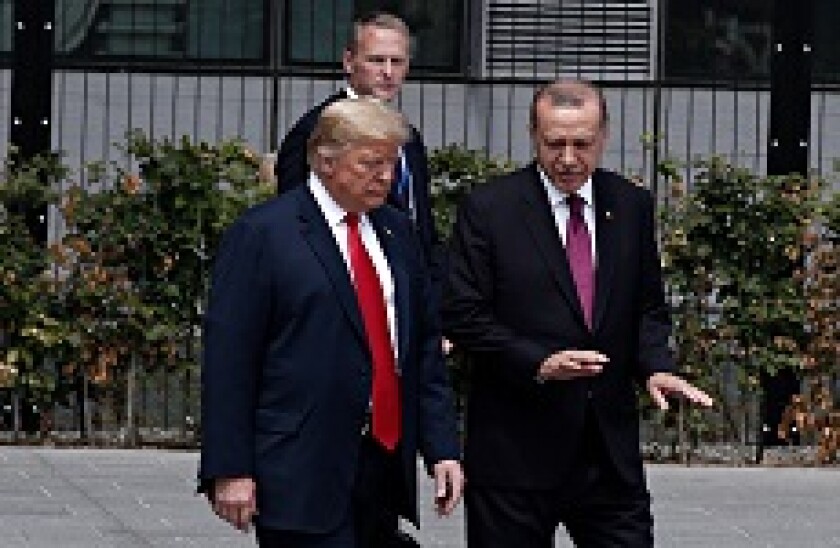Trump’s recent talk about the Federal Reserve echo the language of Turkish president Recep Tayyip Erdoğan, who has also criticised Turkey's central bank policy of interest rate hikes for slowing down and damaging his populist economic policies.
Trump attacked the Fed in almost identical language last week which immediately led to selling pressure on the dollar.
Trump tweeted on Friday that the US “should not be penalized for doing so well. Tightening now hurts all that we have done.”
But Trump’s economic reforms, mainly his large tax cut, has led to a worrying inflation outlook for the US.
As in Turkey, populist economic policy could overheat the economy and the central bank sees its role in stopping that from taking place, and creating more room to adjust rates in future.
Trump, however has broken from the norm of US presidents and, like Erdoğan, is urging the Fed to hold off on tightening to let the economy continue to heat up.
Now it would be somewhat flippant to compare Turkey and the US as like-for-like.
Erdoğan has already taken autocratic power over his country, while Trump is theoretically limited by the checks and balances laid out in the US constitution.
They may share a tendency to engage in nepotism, but the situation in the US remains a long way from the dire straits of Turkey.
Congress is the arm of the US government which holds the Fed to account and US observers will hope, and continue to say on US talk shows, that they believe that an independent Federal Reserve is still held as sacrosanct by most in Congress.
But they shouldn’t be complacent on that issue. GlobalCapital has written about how Republicans have started to target the Fed and its independence in the past.
Many of same iconoclastic urges that fuel Trump have become a norm in the Republican Party, particularly in the Tea Party and libertarian wings of the GOP, and it’s these wings of the Republican Party that propelled Trump to win the nomination and are now heavily represented in Congress.
Investors therefore can’t count on Republicans in Congress acting as a check on the president’s worst instincts, especially as many of them themselves would like to rein in the Fed.
Many in the administration know how serious Trump’s utterances last week were.
The gravity of the implication of a sitting president challenging whether the Federal Reserve is right to be raising interest rates led to Treasury Secretary Steven Mnuchin to walk back President Trump’s tweets.
This should also be taken with caution though, as the case of Gary Cohn showed, the president’s staff cannot be relied on to change Trump's mind.
Investors have also been told multiple times this year that Trump means something different to what he has publicly tweeted or said.
But more often than not this has proven false, and Trump actually means exactly what he says, as was the case with tariffs, pulling the US out of the Paris climate deal and the Iran nuclear treaty.
The likelihood of Trump working with Republicans in Congress to limit the independence of the Federal Reserve in setting interest rates in the near future is still relatively low.
But symbolism matters, and Trump is day-by-day veering into the kind of talk and action rarely seen in established democracies, and which is far more common in the autocratic strongmen that emerging markets investors must monitor.
EM investors have to be attuned to the sudden whims of politicians who don’t care about international norms, central bank independence and free trade.
As such, they are more likely to hedge their risks when leaders make such inflammatory statements, as investors did with Turkey in May, when Erdoğan made similar threats to the independence of his central bank.
Investors in US capital markets are obviously still getting used to how to deal with a figure like Trump, but they should take a tip from their colleagues in emerging markets, and avoid complacency. EM investors know that the worst can and does happen.

